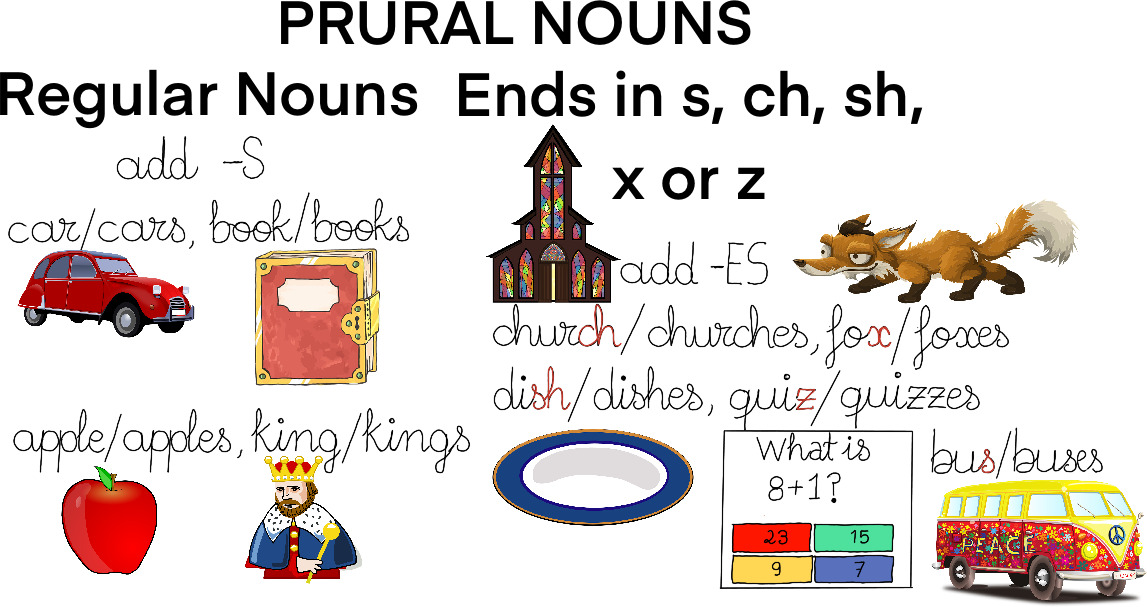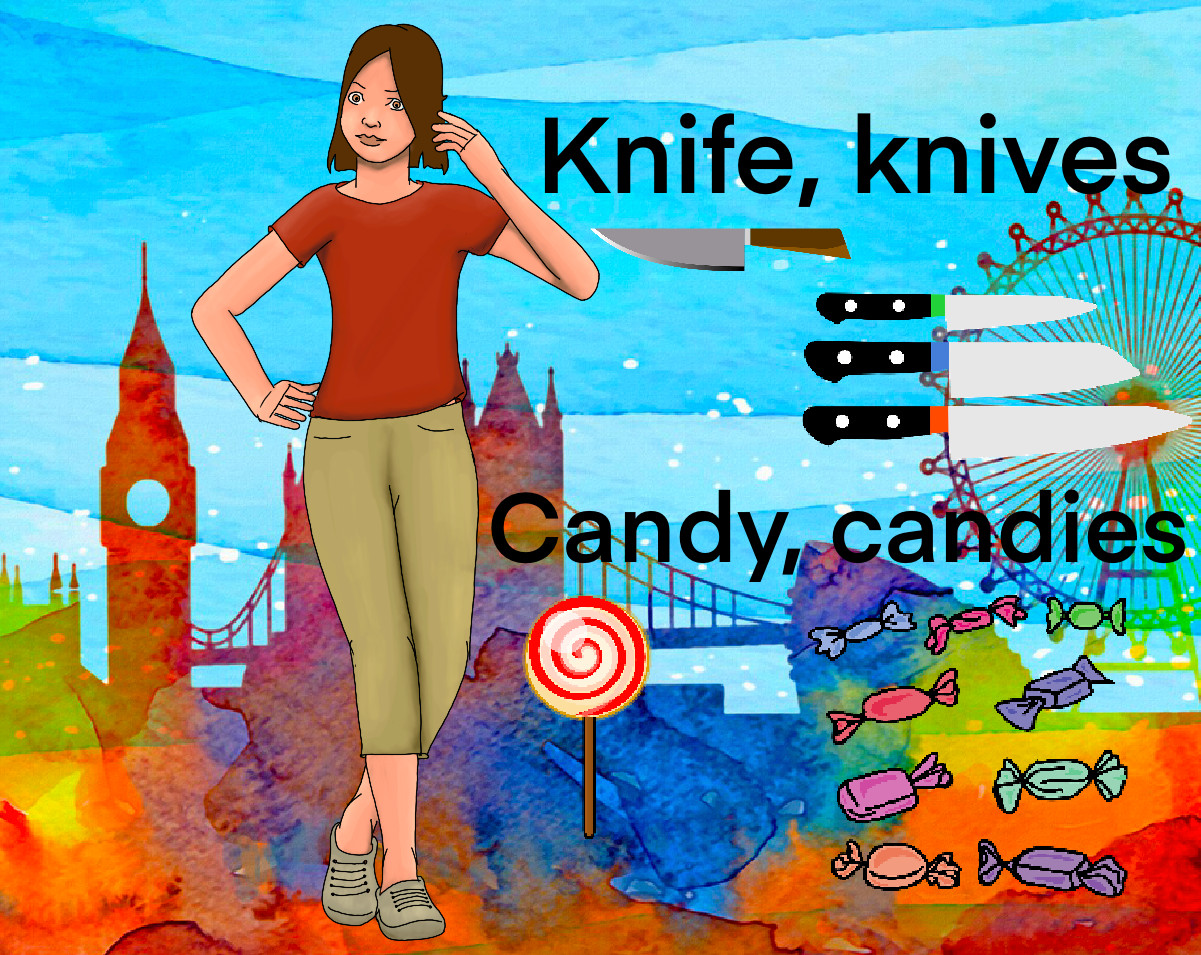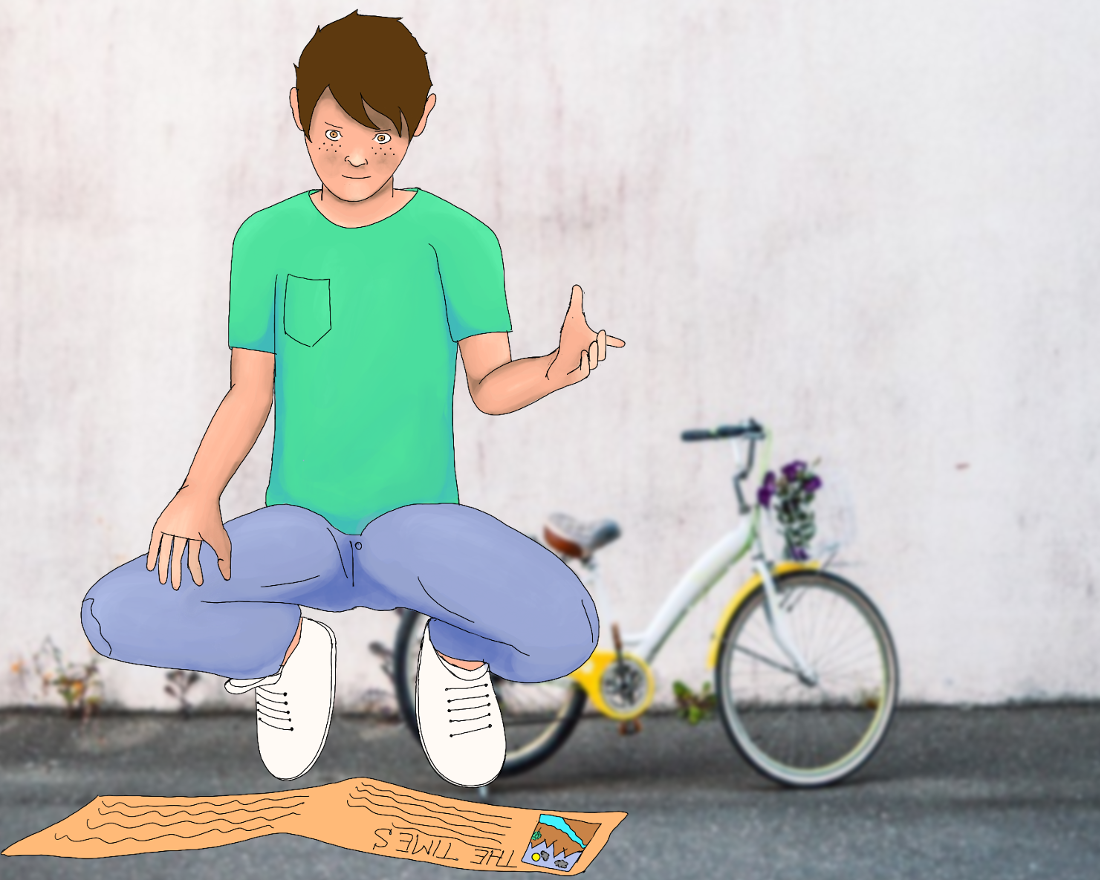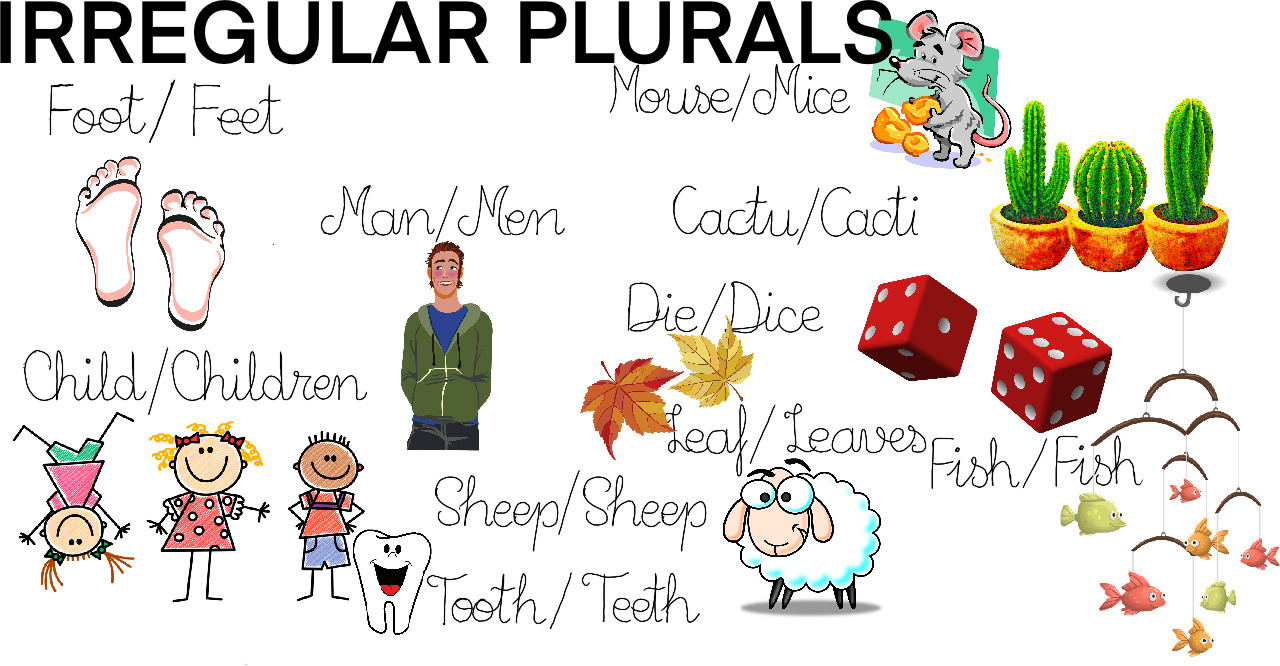The plurals of most nouns are formed by adding -s (kings, pianos, photos) or -es (churches, foxes, dishes) to the singular form.

However, English is more complicated than that. It is full of exceptions and odd rules. Therefore, there are many special and irregular plurals.
- Plurals of nouns ending in a consonant + “y”. The plural is spelled by dropping the “y” and adding “-ies”, such as baby/babies, candy/candies, and lady/ladies.

- Plurals of nouns ending in “f” or “fe”. They are formed by changing a final “-f” (elf/elves) or “-fe” (wife/wives, knife/knives) into “-ves”.

- If a compound noun is made up of a noun plus a modifier, the plural is added to the noun, e.g., father-in-law/father_s_-in-law, passer-by/passer_s_-by, etc.
- Some nouns are used only in plural form: scissors (Have you got a pair of scissors?), police (The police are chasing a criminal suspect), cattle, trousers, etc.
- A few nouns are plural in form, but singular in meaning, so these nouns appear to be plural, but they are singular - seriously, the English language is insane! Some examples are: “The news is at everyone’s fingertips now,” “The measles is a highly contagious disease.”

- Some nouns have the same form in the singular and the plural, e.g., sheep (A sheep is asleep on my sofa; sheep are gentle, sensitive animals who are highly intelligent), fish, squid, deer, Chinese, aircraft, spacecraft, series, etc.
- Some irregular plurals include: child/children, tooth/teeth, foot/feet, man/men, mouse/mice, person/people, woman/women, crisis/crises, ox/oxen, cactus/cacti, etc.

Uncountable nouns do not have a plural form. Some examples are: he has black hair, she has too much money, fruit is very healthy for you and your kids, cheese is nice.
However, even uncountable nouns can be pluralized: Life is what happens to you while you’re busy making other plans/What creature has more lives than a cat?, Religion is the opiate of the masses/All religions are true, I love coffee and tea/Two teas with sugar please, etc.
Adjectives do not have a singular, plural, masculine, feminine, or neutral form. They are always the same and you should never add a final -s to an adjective. Some examples are: art teachers are under appreciated, there are many old buildings throughout Alexandria, etc.
Please, make sure that you have really understood it with our Quiz.








